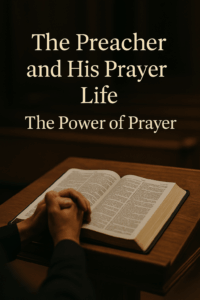⏱️ Estimated Reading Time: 6 min read
It’s the age-old dilemma of the Christian life:
“I just wish I knew God’s will for my life.”
You’ve been there…probably this week, right? Questions surrounding your job, your purpose, or just a situation that seems to bring much stress with minimal clarity. We say, “Your will be done,” but not because we trust His timing; it’s more about our growing impatience and desire to (Can I say it?) get what we want. To fix the uncertainty that hangs like a cloud over us, we try to force God’s hand, attempting to move the process along, and get this thing figured out.
Throughout human history, there have been countless methods and practices that have sought to discern and determine our “fate.” We’re all familiar with the pagan practices, like fortune-telling, that seek to instead elevate mysticism and put trust in magical force or chance. Most of us, thankfully, know that these practices are ludicrous. But for some reason, in seeking to determine God’s will as Christians, we try to employ similar mystical techniques under a more nice-sounding, “biblical” veneer. An example of this is when we sit down with our Bibles, flip to a random page, and expect one of the verses to speak directly to our situation, giving us clear guidance and answers. Or maybe it’s praying for a sign, some clear, billboard-sized message that we shouldn’t keep dating the girl, or should accept the job offer, or should take the next step. Based off of the frequency of our small-group groanings, I feel that trying to discern God’s will is honestly one of the most perplexing and frustrating aspects of our spiritual journey. And even when we sometimes feel it and find it, weeks or months later we’re plunged back into the uncertainty, back into the unknown, back into the spirit of vexation.
What if God has already revealed His will for your life, though? What if it didn’t take a palm reader or a random verse generator to give you the jewels of insight you’ve been tirelessly mining for?
Recently I was studying through the book of 1 Thessalonians, and a particular passage, one I had not noticed with this kind of wording before, jumped to my attention:
“Rejoice always, pray without ceasing, give thanks in all circumstances; for this is the will of God in Christ Jesus for you” (1 Thess. 5:16–18).
Did you catch the last phrase? “This is the will of God in Christ Jesus for you” (emphasis mine). There it is! Paul is literally saying to the Thessalonians, and to us, that this is precisely what God’s will is for our lives. Let’s break that down a bit.
- Rejoice Always
How do we learn to rejoice always? Paul has elsewhere expressed this idea of continual rejoicing in the Lord, most predominantly in Philippians 4:4. The act of rejoicing is not “happiness,” but something greater. Rejoicing is a deep well of contentment not in who we are and what our circumstance may be, but in who God is. When rejoicing becomes about Him and not us, it becomes immovable, unfailing, everlasting. Even in our own spirit, on the days we don’t feel like “rejoicing,” the Lord’s unchangeableness means that He is still worthy of being rejoiced. We can only rejoice always when we find our ultimate contentment in Him alone. - Pray Without Ceasing
When we read “without ceasing” we scoff a bit, even if we don’t express that out loud. We think very highly of Paul’s piety, but seem to think it ridiculous for a man to devote himself to unceasing prayer, especially in our culture of hustle and bustle. “Did Paul not have a job or a busy schedule like me?” we chide. The only thing that seems unceasing for our lives in busyness and prayer gets tossed to the side. Truthfully, a spirit of unceasing prayer, whether audible or contemplative, is the only way we’re going to convince ourselves that God is worth our time, and frankly, more important than the day’s duties. Paul literally meant without ceasing, not in the sense of him nonstop speaking out prayers wherever he was, but always striving to keep a spirit of communicating and trusting and praising the Lord with the daily bread. - Give Thanks in All Circumstances
If Paul hadn’t crossed the line for you before, he probably just did it here. This seems near-appalling to some. How does Paul expect us to give thanks in light of so many devastating things? How could Paul implore me to be grateful for a psycho boss, a totaled vehicle, a lost child, a marginalized reputation, a valley of dryness in life? The reason Paul can — and does — is because he understands God’s hand behind all of our circumstances. Every circumstance is one of grace because it is God’s way of leading us on a journey towards Himself. We don’t understand it in this way, however, for a few reasons. We have such a distorted, muddied view of God’s sparkling plan to redeem us fully. We are constrained and manipulated by time, an invention from God that He stands outside of. We are infinitesimally small compared to Him. But Paul knows that each circumstance should propel us to gratitude because it is through each of those circumstances that God is leading us home.
Are you searching for God’s will for your life? You don’t have to come up with new methods and new practices any longer. You don’t have to wait on the billboard. 1 Thessalonians 5:16–18 was written for me, and for you. We will find great help in discovering God’s will for our lives when we become a people who learn to rejoice, pray, and give thanks. This is God’s will for you, because it’s drawing you to Him, it’s pushing you to lean on Him, it’s forcing you to recognize your inability and His sheer ability. The job answer, finding your purpose, it will come; let God give you wisdom for that situation in His timing. And in the meantime, find God’s will. Find it through rejoicing at what He has already done, pray for what He’s going to do, and thank Him for being able to do it.
*Note: This post was inspired by Bruce Waltke’s book, “Finding the Will of God: A Pagan Notion?” Check it out for a more comprehensive look at this topic.




